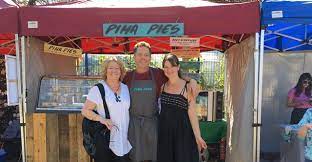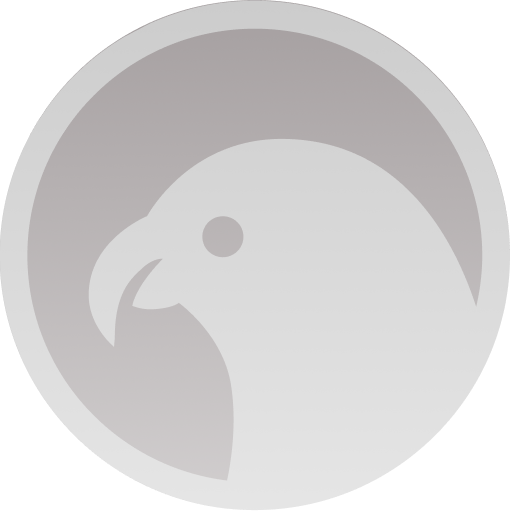
Volcano Coffee Works
Kiwi founded, UK operated Volcano Coffee Works is among the many great coffee roasteries in the UK which has helped forge the coffee revolution here, for which many expat Kiwis are incredibly grateful. Trading through and beyond the economic impact of Covid-19 has many business owners and leaders working to navigate the myriad of information being shared by the government and professional service providers. Volcano Coffee Works Head of Finance, Stewart Morrin has had the unenviable task of deciphering the middle ground between government support, business conditions and financial stability.
Here they share with fellow food and beverage providers the options and considerations available to them during this time of economic disruption.
Cardrona Distillery
Cardrona Distillery made the news for their recent pivot to producing top quality hand sanitiser for their local community, following their having to stop commercial production of its whisky because of the Covid-19 outbreak. Deciding to give away the pure spirit from its gin and vodka stills for use as hand sanitiser. Founder Desiree Whitaker said “We are only a small distillery, it is not something we are set up to do [commercially], but we wanted to be able to do our bit for the community,”.
As another fantastic New Zealand business taking its products to the world, Cardrona encourage people to send a Kiwi made gift to a loved one or if you’d like to learn to upskill by learning the art of cocktail making at home, please consider buying your favourite spirits and upskilling through the recipes on their website. For the New Zealand shop, click here. For the UK shop, click here.
Crosstown Doughnuts
You would struggle to find many Kiwis in London who haven’t heard of Crosstown. For the past 5 years they have brought to us the latest sensation of sourdough doughnuts. Like so many businesses, Crosstown has been massively affected by Covid 19. Recognising that they could not survive trying to do business as they previously have. But knowing that people still need to be fed, and looking at the capacities they had across logistics, people, product and technology – Crosstown Doughnuts banded together with Millers Bespoke Bakery & The Estate Dairy to create a Collective.
Between these companies they employ hundreds of people in offices, retail shops, logistics and in milk, food & bakery production. They needed to keep as many of these people working as possible. Together they bring you The Crosstown Collective. Using their industry contacts, they have sourced great local fruit & vegetables, coffee and even granola. A UK business with some Kiwi ingenuity thrown in for good measure. You can purchase a food box here.
Other Kiwi businesses in the UK which you can support:
- Caravan Coffee Roasters. Caravan have announced their opening dates, check their website for details! In the meantime enjoy their artisan specialty coffee delivered straight to your door. The finest beans from around the world, selected and roasted in London.
- Clapton Craft. Clapton Craft are a craft beer and growler retailer with stores in Clapton, Kentish Town, Walthamstow, Finsbury Park and Forest Hill. Check out their online store for their full offering!
- Hops Burns and Black. Craft beer, hot sauce and records – finally all together. Check out their online store until the Peckham/East Dulwich and Deptford stores reopen.
- Karma Cola. Good looking, great tasting, do gooding drinks. Good for our planet, our growers, and as good for you as fizzy drinks can be. #DrinkNoEvil. Get yours from Amazon, Ocado and Waitrose online.
- Koru Kids. Kiwi founded, London based childcare service which specialises in after school nannies and helping families to find nanny shares, and offering Covid-19 Short-Term cover. Trying to work, homeschool and keep your kids calm and happy in this scary time? We can help. We have vetted, trained, energetic nannies in all of London’s neighbourhoods ready to help you with your short-term childcare.
- Mere Restaurant. This South-Pacific French restaurant has announced it’s opening dates. Check out their website for details!
- Ozone Coffee Roasters. Roasters of specialty coffee for flavor in the cup at home or in cafes, restaurants, offices and businesses. We are still shipping as usual to your lock-down location – home, working from home and business location.
- Parkway Taxis. This Kiwi-owned and operated taxi business is available in Devon. If you’re getting off a train at Tiverton Parkway from London Paddington or Reading, look them up.
- Pics Peanut Butter. Fresh roasted peanuts, lovingly squished in sunny Nelson, New Zealand. Get yours from Amazon and Tesco.
- Provenance Village Butchers. Provenance is a modern interpretation of a traditional village butcher. They offer a next day delivery service to W1, W2, W8, W9, W10, SW1, SW3, SW5, SW7, SW10, NW6, NW8 and NW10.
- Sacred Coffee. We have been enjoying their gourmet coffee and tea for years… and their lolly cake. Gourmet coffee, tea and L&P available straight to your door.
- SANZA. Your one stop food shop that bring Australian, New Zealand, South African foods to ex-pats across London and the UK. When you may be feeling far from home, SANZA brings the taste of home to your front door.
- Sarah Angel Photography. Sarah Angel is a Surray-based photographer specialising in family photography. With safety measures in place, Sarah’s practice is open for business!
- Secret Goldmine. Secret Goldmine produces mouthwatering pies. A Kiwi delicacy which they are now delivering too!
- Specialist Cellars. Wines of the new world. Melanie Brown has been bringing the best of New Zealand wines to the UK for many years. Jump on line and fill up the cellar.
- The Laundry. This Brixton based bistro has recently announced its reopening dates. Check out their website for more details!
- The New Zealand Beer Collective. At the NZ Beer Collective we have scaled back, are following all distancing guidelines and locking things down, but we really don’t know what else to do but keep selling beer. We have put in place a way to buy the beer directly from us, delivered safely anywhere in the UK, at some lockdown pricing. Contact Todd for the latest at [email protected].
- Tried and True Cafe offer award winning innovative breakfasts, light lunches and serious espresso. Rob and the team look forward to welcoming you to this gem in Putney.
- Yeastie Boys. New Zealand beer brewed here! Yeastie Boys have been brewing up a storm for the past 5 years in the UK. They want to keep their beer arriving to Kiwi fridges around the nation. Shop now on their new online store, and get a tasty 10% discount with your code of K1W1.

 MENU
MENU











